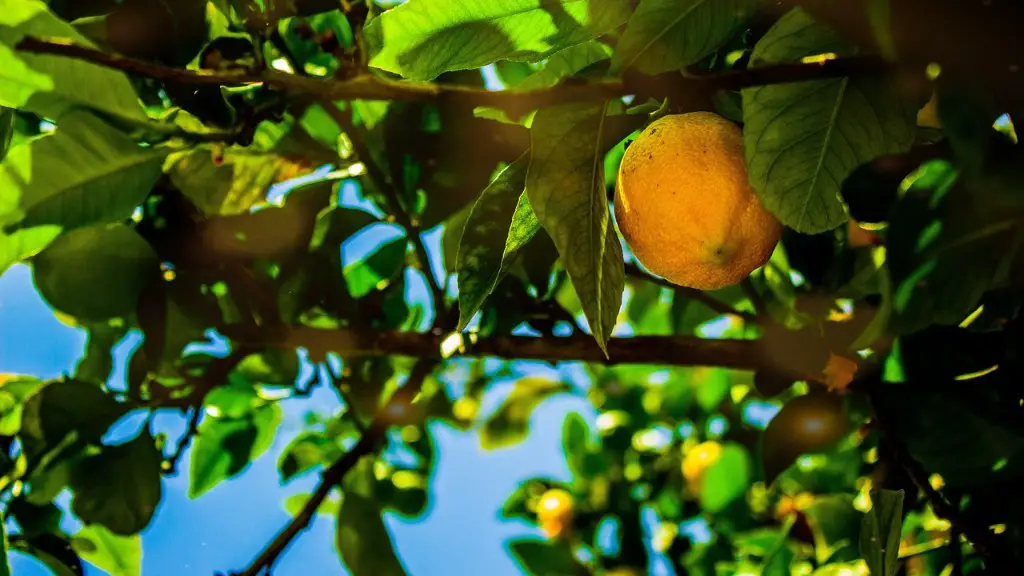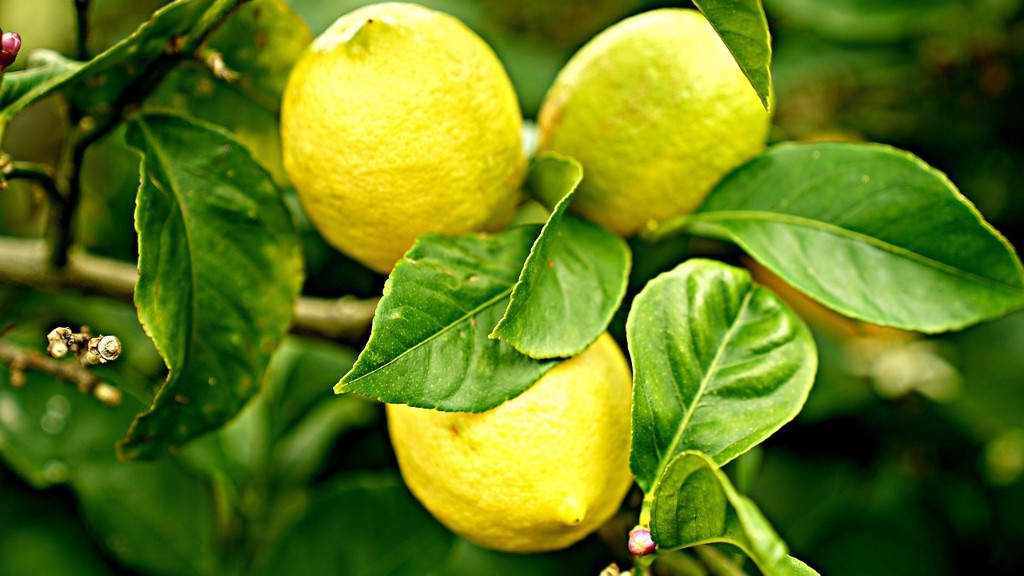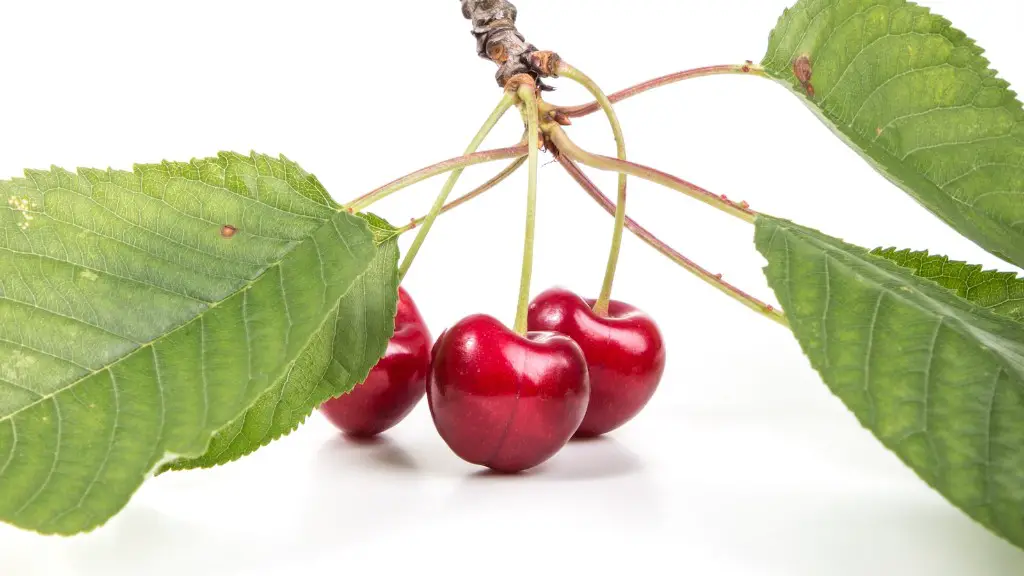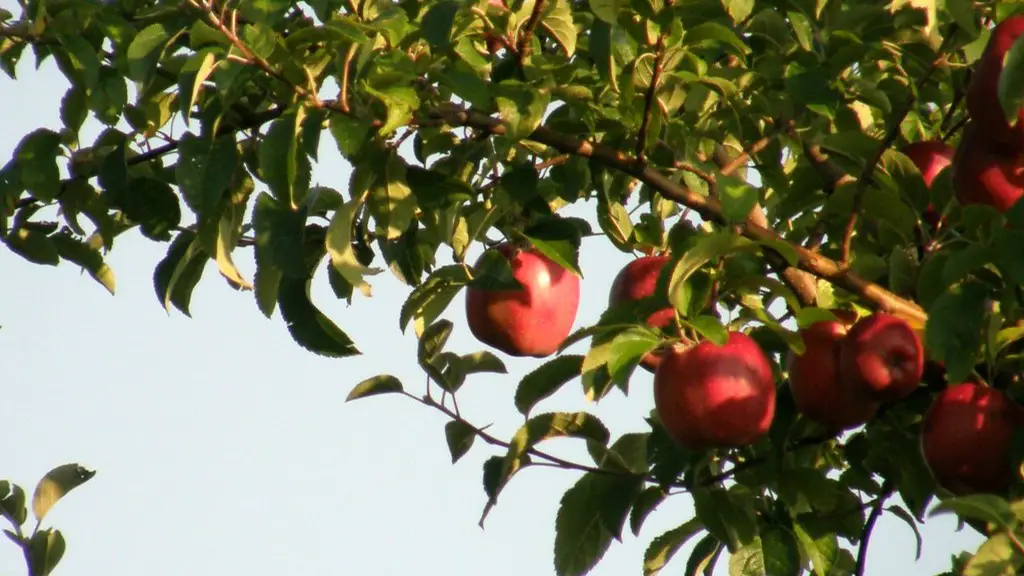Lemon trees are a staple in many gardens and orchards. The question of whether or not you can grow a lemon tree in your garden can be a tricky one. The answer really depends on several factors, such as your climate, soil conditions, species of lemon tree you’re interested in, and how much time and effort you’re willing to put into the process. To get a better understanding of the situation and find out if you can grow a lemon tree successfully, it’s best to take the time to do some research.
First and foremost, the climate in your locality will play a major role in determining whether you can grow a lemon tree. In areas that tend to experience colder temperatures and extended periods of frost, it’s probably not practical to grow a lemon tree outside. Furthermore, the species of lemon tree you choose should be one that’s suitable for your climate and soil type. Generally, cold hardy trees will do better in colder climates and those which are more heat and sun tolerant will do better in warm and tropical climates respectively.
If you’re looking to grow a lemon tree in your garden, you might want to consider container gardening. This way, you can bring the lemon tree inside during colder temperatures and avoid any potential damage. Additionally, container gardening will give you more control over your lemon tree’s environment – providing it with enough warmth, water, light, and other conditions it needs to survive and thrive.
To ensure that your lemon tree will grow successfully, you’ll need to provide the necessary supplies and materials. For container gardens, you’ll need a potting mix, fertilizer, potting container, water, and soil. For in-ground lemon trees, you’ll need more soil and occasionally water, depending on the availability. Once your lemon tree is provided with the necessary resources and environment for optimal growth, your job doesn’t stop there. You’ll still need to regularly prune and trim your lemon tree’s branches, leaves, and fruits to help it remain healthy and productive.
Finally, you’ll need to pay close attention to any signs of disease in your lemon tree. Common diseases in lemon trees include citrus canker, greasy spot fungus, and sooty mold. These diseases can threaten the health of your lemon tree and can potentially destroy your entire crop. To prevent this, you’ll need to inspect your lemon tree regularly and keep a close eye out for any signs of disease. If you do notice any signs of disease, you should contact your local agricultural service or botanist to get help in diagnosing the issue and implementing a treatment if needed.
Harvesting
Harvesting lemons from your own tree can be an incredibly rewarding experience. Knowing that the lemon in your kitchen was grown in your own garden is a great feeling for many gardeners and is often an incentive for people to grow their own lemon tree. To get the most out of your lemon harvest, you’ll need to keep a few things in mind. Timing is key, as too early or too late picking results in a low-quality fruit. You’ll also need to keep track of the lemon tree’s health, as a healthy lemon tree will yield much more fruit than a weaker one. Additionally, you’ll need to be mindful of pests and other critters that might be attracted to your lemons. Taking the appropriate precautions to avoid these pests will help ensure that your lemons make it to your kitchen healthy and fresh.
Caring and Maintenance
To ensure your lemon tree is healthy and productive, it’ll require proper upkeep and maintenance throughout its lifetime. As mentioned earlier, regular pruning and trimming is important to help keep your lemon tree fruitful and vigorous. Additionally, you’ll need to make sure that the soil conditions are always kept within optimal range. Fertilizing and mulching your lemon tree can help keep the soil at the right pH, moisture, and nutrient levels. Furthermore, you’ll need to be mindful of pests and diseases in the area, as these can all damage your lemon tree.
Lastly, you’ll need to be aware of any signs of distress from your lemon tree and take immediate steps to address any underlying issues. If certain problems go unchecked and untreated, they can quickly spread to other nearby plants and trees. Being proactive about lemon tree care is the best defense against any potential issues.
Water and Sunlight Requirements
Lemon trees need lots of water and sunlight to remain healthy and productive. On average, a lemon tree will need approximately 1-2 inches of water every week, depending on your climate. Otherwise, dehydration and subsequent yellowing of leaves could occur. Additionally, the lemon tree needs plenty of direct sunlight during the day, making them ideally suited for terraces and balconies with plenty of sun exposure. Keeping your lemon tree adequately hydrated and exposed to sunlight throughout the day can help to ensure its wellness and growth.
Types and Variations
Although the Meyer lemon tree is the most popular lemon species, there are dozens of other lemon varieties to choose from. Some of these species are more cold or heat tolerant than others, as well as more disease resistant. As such, you should take the time to evaluate which type of lemon tree is suitable for your local climate and soil conditions. This put, you’ll need to consider your available resources and the specific characteristics of a lemon tree species before making any decisions.
Container Planting
If you’re looking to grow a lemon tree, but don’t have access to a garden or enough space for an in-ground tree, then container planting might be a viable solution for you. Container growing gives you more control over the lemon tree’s environment, allowing you to shield it from extreme temperatures and conditions, as well as harmful pests and diseases. Additionally, it’s fairly easy to move the lemon tree indoors and outdoors depending on the weather. However, one potential downside is that the tree might require more water than an in-ground tree, so be sure to take this into consideration before deciding.
Growing from Seed
Although it might sound daunting, growing a lemon tree from seed is a perfectly viable option if you’re willing to put in the effort. To do this, you’ll need to acquire high-quality fresh lemon seeds, prepare a suitable soil mixture, and provide your seedlings with enough warmth and light. Adjusting the soil pH level and using fertilizer can help to ensure the health of your lemon tree. Upon germination, it could take up to 8 years for a lemon tree to bear fruit. Therefore, it’s important to keep in mind the long-term commitment if you choose to grow a lemon tree from seed.
Environmental Factors
Depending on your local climate, certain environmental factors can have an effect on your lemon tree’s health and overall yield. Temperature, sunlight, wind, and humidity all play integral roles in the health and vigor of any citrus tree, and it’s important that you stay mindful of these elements. While you might not be able to control the weather and climate in your area, you can take steps to help protect your lemon tree from the harsher elements. Locating it in a protected, sunny area, and providing extra shade or wind protection could be incredibly beneficial for your lemon tree.



